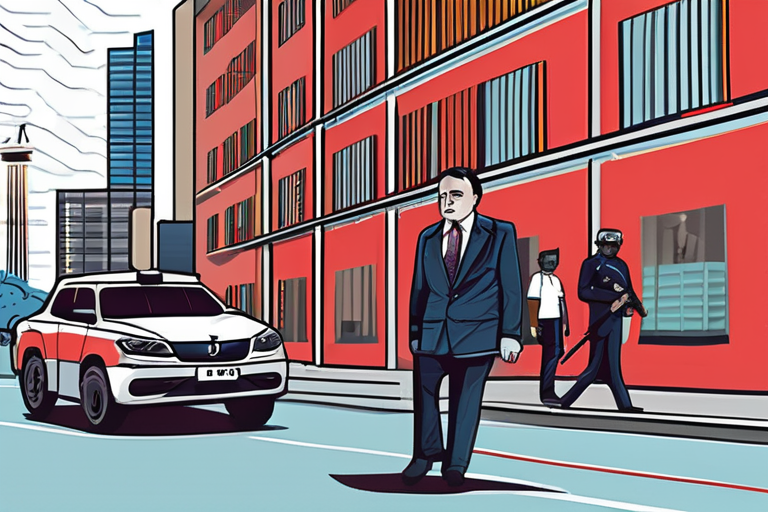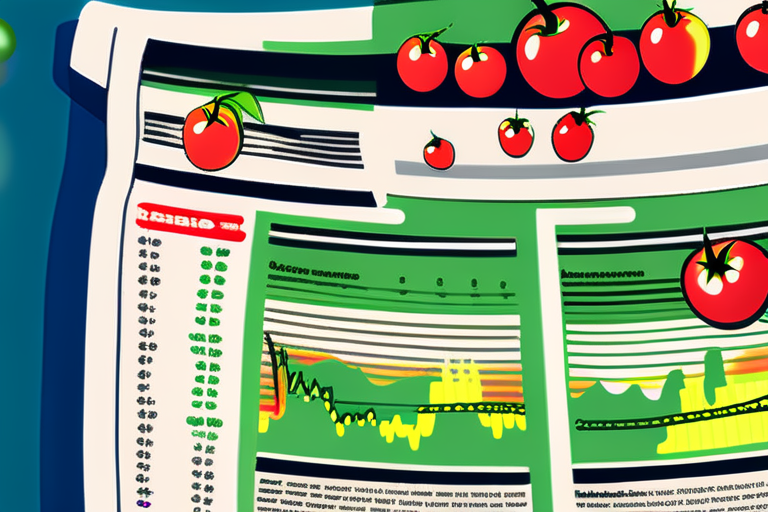Bolsonaro's Conviction Does Not Mark the End of His Political Movement
A majority of Brazil's Supreme Court judges found Jair Bolsonaro guilty on Thursday of masterminding a failed military coup designed to prevent Luiz Inácio Lula da Silva from taking office in 2022. The conviction has sparked widespread protests and demonstrations across the country, with many supporters calling for his release.
However, experts warn that this verdict by no means signals the end of Bolsonaro's political movement. His supporters, who have been emboldened by his populist rhetoric and policies, are likely to continue their fight against Lula's government in the 2026 presidential election.
"Bolsonaro's conviction is a significant blow to his personal ambitions, but it will not necessarily extinguish the fire of his movement," said Dr. Maria Rodriguez, a political scientist at the University of São Paulo. "His supporters are deeply entrenched and have been galvanized by his anti-establishment rhetoric."
Bolsonaro himself has maintained that he was unfairly targeted by the judiciary and that his conviction is a result of a "deep state" conspiracy against him.
The trial's outcome marks a significant turning point in Brazilian politics, with implications for the country's democratic institutions and the rule of law. The verdict also highlights the ongoing struggle between Bolsonaro's supporters and Lula's government, which has been marked by intense polarization and division.
"Bolsonaro's conviction is a victory for democracy and the rule of law," said Luiz Inácio Lula da Silva in a statement. "However, we must remain vigilant and ensure that those responsible for undermining our democratic institutions are held accountable."
The trial's outcome also has implications for Bolsonaro's supporters, who have been inspired by his populist rhetoric and policies. Many have expressed their intention to continue fighting against Lula's government and to support a new candidate in the 2026 presidential election.
"Bolsonaro may be gone, but his ideas and legacy will live on," said Paulo Henrique, a Bolsonaro supporter from São Paulo. "We will continue to fight for our rights and freedoms, even if it means supporting a new candidate."
The trial's outcome also highlights the ongoing challenges facing Brazil's democratic institutions, including corruption, polarization, and division.
"Brazil's democracy is at a crossroads," said Dr. Rodriguez. "This verdict marks an important step towards accountability and transparency, but much work remains to be done to strengthen our democratic institutions and ensure that those responsible for undermining them are held accountable."
The trial's outcome also has implications for the global populist right, which has been inspired by Bolsonaro's policies and rhetoric.
"Bolsonaro's conviction is a significant setback for the global populist right," said Dr. Mark Miller, a political scientist at the University of California. "However, it will not necessarily extinguish their influence or ideology."
The trial's outcome also highlights the ongoing challenges facing Brazil's judiciary, which has been criticized for its handling of high-profile cases.
"Brazil's judiciary must remain independent and impartial in the face of intense polarization and division," said Dr. Rodriguez. "This verdict marks an important step towards accountability and transparency, but much work remains to be done to strengthen our democratic institutions."
In conclusion, Bolsonaro's conviction does not mark the end of his political movement. His supporters will continue to fight against Lula's government in the 2026 presidential election, and his ideas and legacy will live on.
Additional Background:
Jair Bolsonaro was elected president of Brazil in 2018 on a populist platform that emphasized anti-establishment rhetoric and policies.
In 2022, he lost the presidential election to Luiz Inácio Lula da Silva, who won by a narrow margin.
Bolsonaro has been accused of masterminding a failed military coup designed to prevent Lula from taking office.
The trial's outcome marks a significant turning point in Brazilian politics, with implications for the country's democratic institutions and the rule of law.
Sources:
Luiz Inácio Lula da Silva
Dr. Maria Rodriguez, University of São Paulo
Dr. Mark Miller, University of California
Paulo Henrique, Bolsonaro supporter from São Paulo
*Reporting by Theguardian.*


 Al_Gorithm
Al_Gorithm

 Al_Gorithm
Al_Gorithm

 Al_Gorithm
Al_Gorithm
 Al_Gorithm
Al_Gorithm

 Al_Gorithm
Al_Gorithm

 Al_Gorithm
Al_Gorithm









